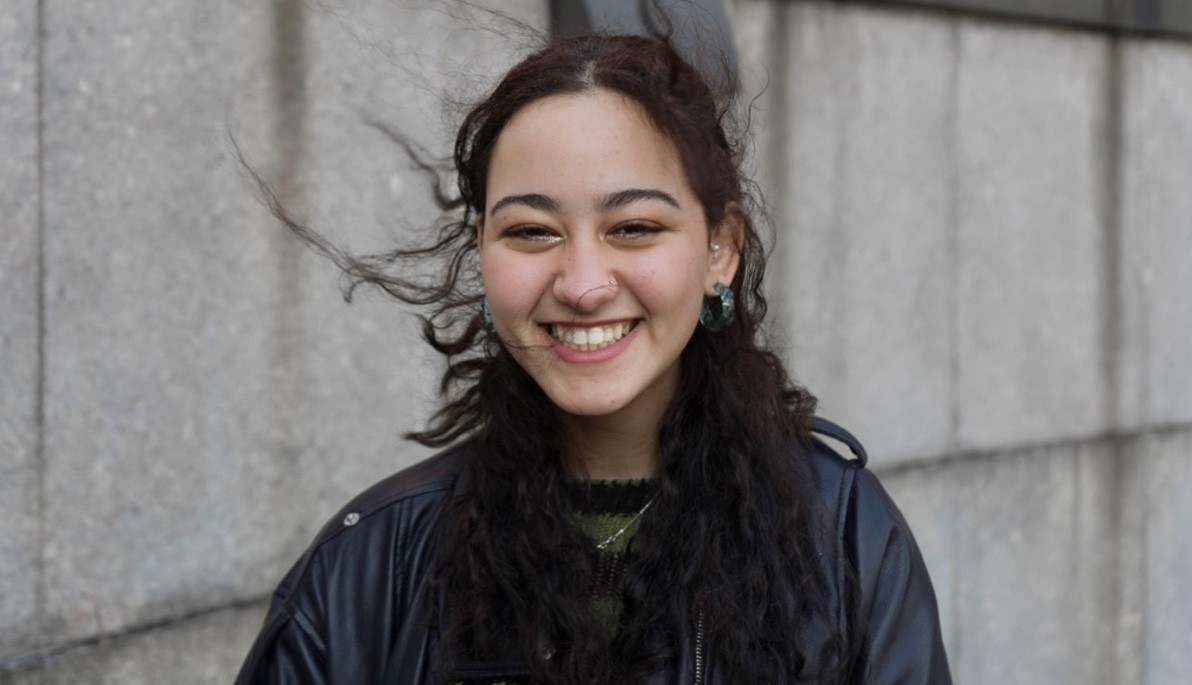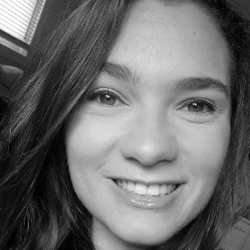News
Student Conducts Eye Movement Research
February 21, 2024
Psychology student Ola Abozid has a vision for her research goals. Fueled by passion and the belief that she can produce compelling results if she has enough support, she applied for the Psi Chi International Honor Society in Psychology’s 2023–2024 Fall Undergraduate Research Grant—and received it.
Abozid received the $3,350 grant in December 2023 for her proposed project, “Search Cues in Radiology.” Mentored by Assistant Professor of Psychology and Counseling Robert Alexander, Ph.D., Abozid, an undergraduate student, will apply behavioral psychology (the study of observable behavior) and use of an eye tracker to understand the effects of cues on radiologists’ medical image viewing. With these funds, she can directly support her research, obtain necessary supplies, and compensate her research participants.
According to Abozid, during radiologists’ training they view radiological images and receive feedback from their mentors. But, since human error and discrepancies are recurrent and training may vary by practice, region, and mentor expertise, artificial intelligence (AI) use has become more common in medical practices and is beginning to be used in radiological image viewing. If AI systems flag abnormal features in an image, radiologists may be cued to look at only the precise locations of those features rather than use their own prior clinical knowledge to search the image.
Abozid says the use of AI may harm radiologists’ performance as they begin to overly rely on cues that are sometimes inaccurate. Her research, to take place in Alexander’s lab on the New York City campus, will assess the effects of cue precision on the search for abnormalities, including accuracy in identifying them, changes in overall search strategies, and other factors relevant to performance.
“Understanding the effects of cues on medical image viewing is critical because medical professionals have a limited understanding of how information provided by AI tools might affect how images are viewed,” Abozid explains. “Through my research, I will track where radiologists look, how long they look, how much eye movement is involved, and the efficacy of their eye movement.”
Participants will sit in a room with minimal distractions while their eye movements are recorded using an eye tracker. They will then view medical images, like CT scans, while they search for abnormalities like potentially cancerous nodules.
As she records participants’ eye movements and discerns how precise text cues versus imprecise cues (looking for a specific shape versus looking for any shape) affect the way radiologists interpret medical images, she will discover which kind of cues works best. This might help inform the design of radiology tools and equipment, as well as improve the diagnostic accuracy of AI cues.
Abozid will also receive a $1,000 Early Career Scientist Travel Grant from the National Institutes of Health National Eye Institute, which she will use to support her travel to St. Pete Beach, Fla., for the Vision Sciences Society annual meeting in May. At this conference, she will present her ongoing radiological research.
“My dream job is to be a therapist while remaining involved in research focused on mental and medical health,” says Abozid, who plans to pursue her doctoral degree in psychology (Psy.D). “As I complete this research within the next year, I will apply survey and data collection techniques to study the learned behaviors of radiologists. This incorporates behavioral psychology and data analysis skills, both crucial within the psychology field.”
As her research prepares her for a future career, her own background reinforces the empathy needed to become a therapist. Abozid was born and raised in the United Arab Emirates until she was nearly 12 years old. She then lived on and off in Egypt during the following year until her family moved to the United States. From living among different cultures, she is especially aware of considering cross-cultural differences when tackling clinical practice, stating that failing to create a cultural connection is like encountering a language barrier between patient and practitioner.
“I am excited to earn my Psy.D. one day as I have grown to love the research process, and I want the flexibility to be involved in research opportunities,” she says. “But with my end goal of becoming a therapist, I look forward to using my personal background to create a more inclusive and supportive environment.”





